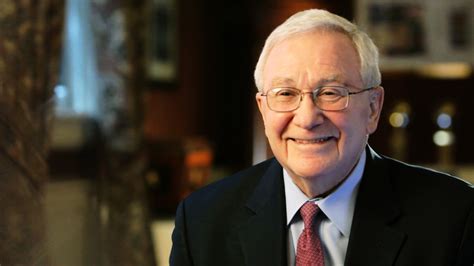A Quote by Christopher Hitchens
It's probably a merciful thing that pain is impossible to describe from memory
Related Quotes
But pain may be a gift to us. Remember, after all, that pain is one of the ways we register in memory the things that vanish, that are taken away. We fix them in our minds forever by yearning, by pain, by crying out. Pain, the pain that seems unbearable at the time, is memory's first imprinting step, the cornerstone of the temple we erect inside us in memory of the dead. Pain is part of memory, and memory is a God-given gift.
We no longer see the evolution of the nervous system, but that of a certain individual. The role of the memory is very important but... not as important as we believe. Most of the important things that we do don't depend on memory. To hear, to see, to touch, to feel happiness and pain; these are functions which are independent of memory; it is an a priori thing. Thus, for me, what memory does is to modify that a priori thing, and this it does in a very profound way.
I think pain is a very - it's an extremely hard thing to empathize moment to moment. And you often don't remember your own pain, you know, that moment that you broke a limb or you burned yourself or, I think, this is a common thing that women talk about with childbirth, that the memory of the pain is hard to summon up and relive, thankfully.
Stress does not cause pain, but it can exacerbate it and make it worse. Much of chronic pain is 'remembered' pain. It's the constant firing of brain cells leading to a memory of pain that lasts, even though the bodily symptoms causing the pain are no longer there. The pain is residing because of the neurological connections in the brain itself.
Why? Why does what was beautiful suddenly shatter in hindsight because it concealed dark truths? Why does the memory of years of happy marriage turn to gall when our partner is revealed to have had a lover all those years? Because such a situation makes it impossible to be happy? But we were happy! Sometimes the memory of happiness cannot stay true because it ended unhappily. Because happiness is only real if it lasts forever? Because things always end painfully if they contained pain, conscious or unconscious, all along? But what is unconscious, unrecognized pain?
I was eight years old when my father was murdered. It is almost impossible to describe the pain of losing a parent to a senseless murder ... But even as a child, one thing was clear to me: I didn't want the killer, in turn, to be killed. I remember lying in bed and praying, Please, God. Please don't take his life, too. I saw nothing that could be accomplished in the loss of one life being answered with the loss of another.
It is manifest therefore that they who have sovereign power, are immediate rulers of the church under Christ, and all others but subordinate to them. If that were not, but kings should command one thing upon pain of death, and priests another upon pain of damnation, it would be impossible that peace and religion should stand together.
Pain itself can be pleasurable accidentally in so far as it is accompanied by wonder, as in stage-plays; or in so far as it recalls a beloved object to one's memory, and makes one feel one's love for the thing, whose absence gives us pain. Consequently, since love is pleasant, both pain and whatever else results from love, in so far as they remind us of our love, are pleasant.

































